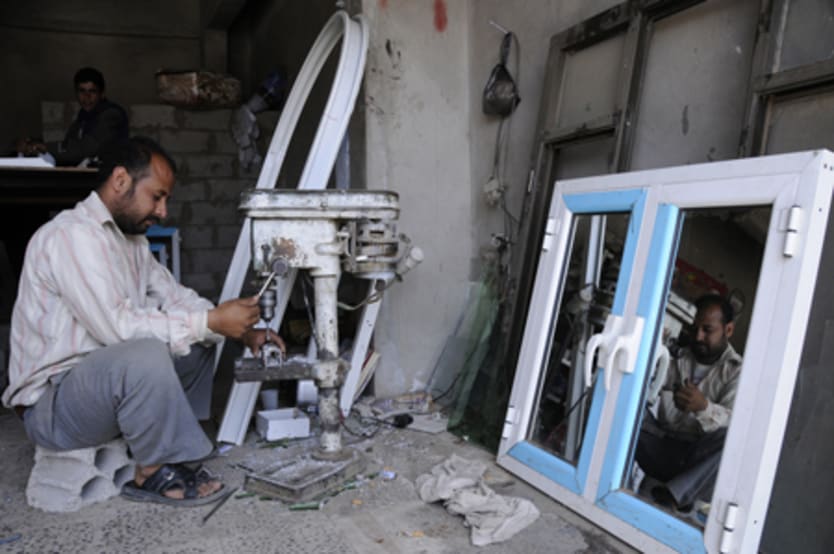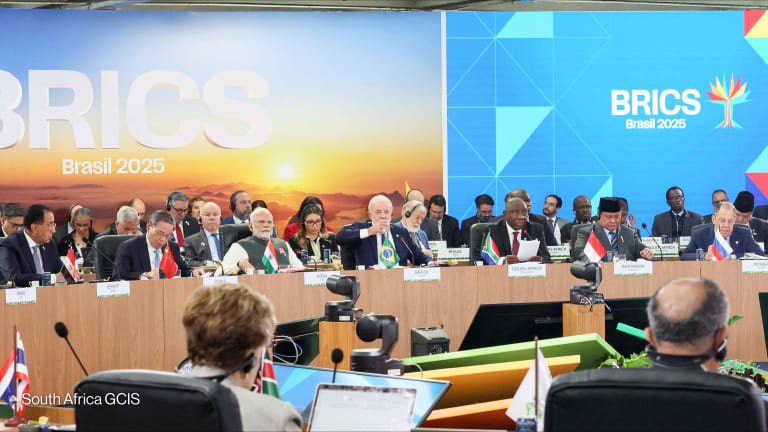
We in the international community wait with anticipation as U.S. President Barack Obama assembles his foreign policy team. This group will engage the world on behalf of the United States, and it will face many difficulties in the years ahead. One of the biggest challenges facing them will be trying to bring stability to the Middle East. As vice president of development finance for Global Communities, the largest international network of microfinance lenders in the Middle East, I urge President Obama to encourage private investment in the Middle East as a road to increased prosperity for its people, stability for the region, and security for the world.
While political instability across the Middle East has long kept investors at bay, the unprecedented social and political transformation that has recently taken place in the region offers tremendous opportunities to support economic growth. Now is the moment for maximum investment in businesses and entrepreneurship in the Middle East so that economic growth will be generated from the ground up. This will ensure more equitable income generation and job creation across all sectors of society, creating a bigger and stronger middle class, and reducing economic disparity and extremism.
I have seen up-close the tremendous results that microfinancing can have on equitable economic growth. In the Middle East region alone, Global Communities has more than 68,000 active borrowers and 700 staff and serves a broad spectrum from micro- to small and medium-size businesses, as well as “missing middle” enterprises that are too large to be served by traditional microfinance institutions, but too small for commercial banks. Overall, Global Communities has disbursed more than $620 million, provided loans to more than 260,000 people and helped create an estimated 500,000 jobs in the region since 2004. The microfinance work Global Communities does in the Middle East is part of a larger effort of microfinance providers. According to 2009 statistics from the MIX Market on the Middle East and North Africa, there are approximately 2.5 million microfinance borrowers, 76 civil society organizations, and over 5,000 employees involved. And yet the Middle East is the least developed region in the microfinance industry in terms of its outreach, ability to attract investment, and profitability.
A large part of the problem is the amount of donor and government subsidy that has in some cases distorted markets, and the lack of legal frameworks that enable more commercially-oriented yet still mission-driven models of microfinance. When donor funds dry up, investment is a must. The challenge is that while many investors see the positive track record and are increasingly interested in this region, the vehicles for that investment are few. President Obama and his incoming administration can help address this problem by highlighting opportunities for investment in the Middle East to the Western world. He should also work with policymakers in the region to open markets to increase opportunity for entrepreneurs and SME owners. Finally, he should work with the leaders of the region to create legal, policy and business environments that help make investment programs more successful.
Global Communities’ experience has proven that commercial models can and do work and that a small amount of investment in the area goes a long way. Also, much of our success in the region is due to the fact that the people and families we serve are the working class: they pay back (our repayment rates are above 98 percent) and they have no other choice but to stay in the country and make things work. They live through war, conflict, disaster, regime change, stagnation and regime change again. They represent the future, and they will determine what their countries ultimately become. They cannot flee their country in the event of an emergency — they have to invest in it, and in their future.
The transformation taking place today in the Middle East is a signal that now is the time to invest, and to invest in people that matter most. In Global Communities’ experience, these are the young, the entrepreneurial and the small business owners with potential to grow and create jobs for the next generation that will lead to greater stability rather than disappointment, disillusionment and the ideological extremes that go with them. Global Communities’ success in the region has proven that change is possible, and thousands of viable small businesses are worthy of investment and do pay back. It is a lost opportunity if we do not take up the challenge.
This is part of a series of guest opinions by NGO leaders on ways to make U.S. foreign assistance more effective.








